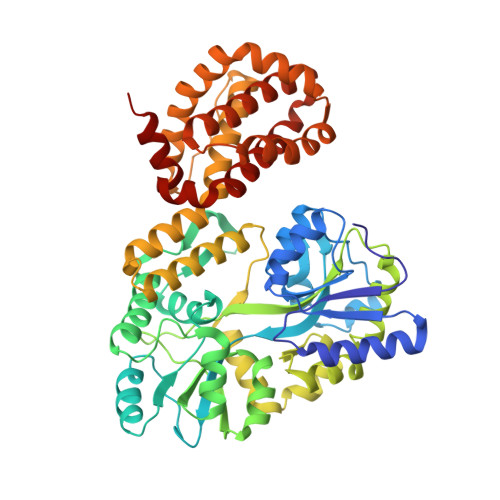Macrocyclic Carbon-Linked Pyrazoles As Novel Inhibitors of MCL-1.
Demin, S., Peschiulli, A., Velter, A.I., Vos, A., De Boeck, B., Miller, B., Rombouts, F.J.R., Reuillon, T., Lento, W., Blanco, M.D., Jouffroy, M., Steyvers, H., Bekkers, M., Altrocchi, C., Pietrak, B., Koo, S.J., Szewczuk, L., Attar, R., Philippar, U.(2023) ACS Med Chem Lett 14: 955-961
- PubMed: 37465311
- DOI: https://doi.org/10.1021/acsmedchemlett.3c00141
- Primary Citation of Related Structures:
8SVY - PubMed Abstract:
Myeloid cell leukemia-1 (MCL-1) is a member of the antiapoptotic BCL-2 proteins family and a key regulator of mitochondrial homeostasis. Overexpression of MCL-1 is found in many cancer cells and contributes to tumor progression, which makes it an attractive therapeutic target. Pursuing our previous study of macrocyclic indoles for the inhibition of MCL-1, we report herein the impact of both pyrazole and indole isomerism on the potency and overall properties of this family of compounds. We demonstrated that the incorporation of a fluorine atom on the naphthalene moiety was a necessary step to improve cellular potency and that, combined with the introduction of various side chains on the pyrazole, it enhanced solubility significantly. This exploration culminated in the discovery of compounds ( R a )- 10 and ( R a )- 15 , possessing remarkable cellular potency and properties.
- Janssen Research & Development, Janssen Pharmaceutica N.V., Turnhoutseweg 30, Beerse B-2340, Belgium.
Organizational Affiliation:





















